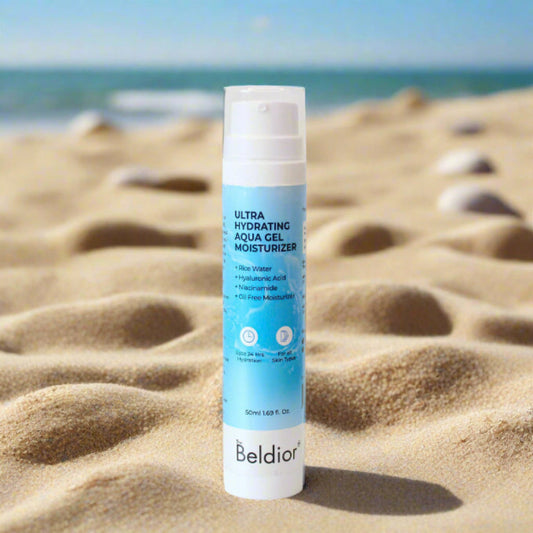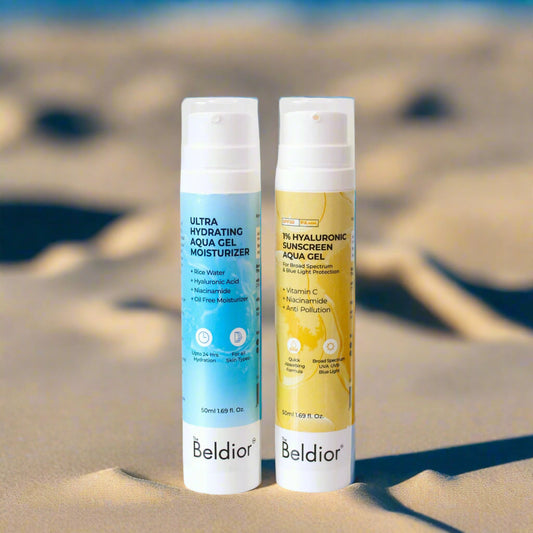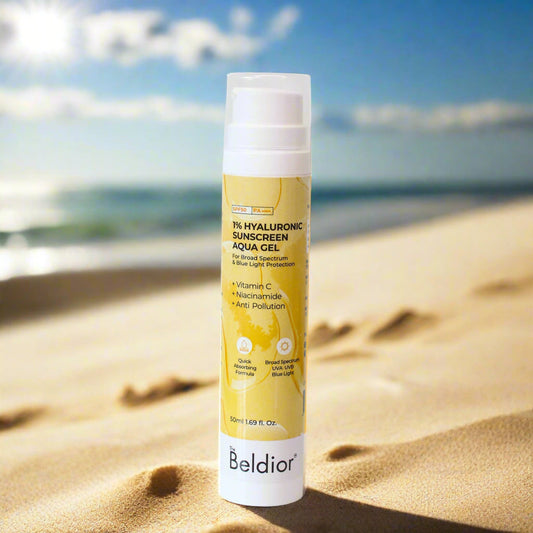Ever noticed how your skin looks dull or those dark circles get worse after a bad night's sleep? The secret to glowing, youthful skin isn’t just about skincare products—it’s also about getting quality sleep. Research shows that poor sleep weakens your skin’s ability to repair itself, leading to wrinkles, dryness, and breakouts. A study from the University of California found that people who sleep fewer than six hours have higher cortisol levels, which break down collagen and cause inflammation. If you want to wake up with healthy, radiant skin, improving your sleep quality is key.
How Poor Sleep Affects Your Skin
Lack of restful sleep doesn’t just make you tired—it affects your skin barrier, slows down cell regeneration, and increases moisture loss. Here’s how a lack of sleep shows up on your skin:
- Faster Aging – A study from University Hospitals Case Medical Center found that women who don’t sleep well have more fine lines, uneven skin tone, and reduced elasticity.
- More Breakouts – Sleep deprivation increases cortisol, which boosts oil production and leads to acne.
- Dull, Tired Skin – During deep sleep, blood flow increases, delivering nutrients and oxygen. Without enough sleep, skin looks lifeless.
- Slower Skin Healing – Your skin repairs itself at night by producing collagen and hyaluronic acid. Without proper rest, this process slows down, leading to wrinkles and sagging.
How to Improve Sleep for Healthier Skin
1. Stick to a Regular Sleep Schedule
Going to bed and waking up at the same time each day regulates your circadian rhythm, essential for skin repair. Studies show that inconsistent sleep patterns disrupt melatonin production, leading to oxidative stress that damages skin cells.
2. Upgrade Your Nighttime Skincare Routine
Your skin does most of its healing while you sleep, so nighttime skincare is crucial. Always cleanse your face, then apply a hydrating serum rich in antioxidants and peptides to boost collagen production.
3. Reduce Screen Time Before Bed
Late-night scrolling? Blue light from screens reduces melatonin levels, making deep sleep difficult—when most skin repair happens. Try turning off screens at least an hour before bed.
4. Optimize Your Sleep Environment
A cool, dark room improves sleep quality. The ideal temperature for deep sleep is 60-67°F. Blackout curtains can help maintain melatonin levels and enhance skin regeneration.
5. Watch Your Diet Before Bed
Caffeine and sugar can disrupt your sleep cycle. A study in the Journal of Clinical Sleep Medicine found that consuming caffeine even six hours before bed leads to lighter sleep. High sugar intake spikes insulin levels, contributing to acne and inflammation.
6. Switch to a Silk Pillowcase
Cotton pillowcases absorb moisture and skincare products, drying out your skin. Silk pillowcases reduce friction, help skin retain moisture, and prevent sleep wrinkles.
7. Stay Hydrated and Eat Skin-Friendly Foods
Hydration is key to healthy skin. Drinking water before bed keeps skin cells moisturized. Consuming foods rich in omega-3s (like salmon and walnuts) improves skin elasticity, and antioxidant-rich diets help prevent premature aging.
8. Manage Stress Before Bed
Stress increases cortisol, leading to inflammation, acne, and dull skin. Practicing meditation, deep breathing, or yoga before bed can promote clearer, healthier skin.
Boost Your Beauty Sleep with TheBeldior’s Nighttime Skincare
Want to maximize your skin’s overnight repair? TheBeldior’s Radiance Night Repair Serum is formulated with hyaluronic acid, vitamin C, and peptides to support your skin while you sleep. This powerhouse serum:
- Deeply hydrates to prevent dryness and irritation
- Reduces wrinkles by boosting collagen production
- Enhances cell renewal for smoother, more youthful skin
Better sleep habits combined with the right skincare routine will transform your skin health. Start today and wake up to a refreshed, radiant complexion!




